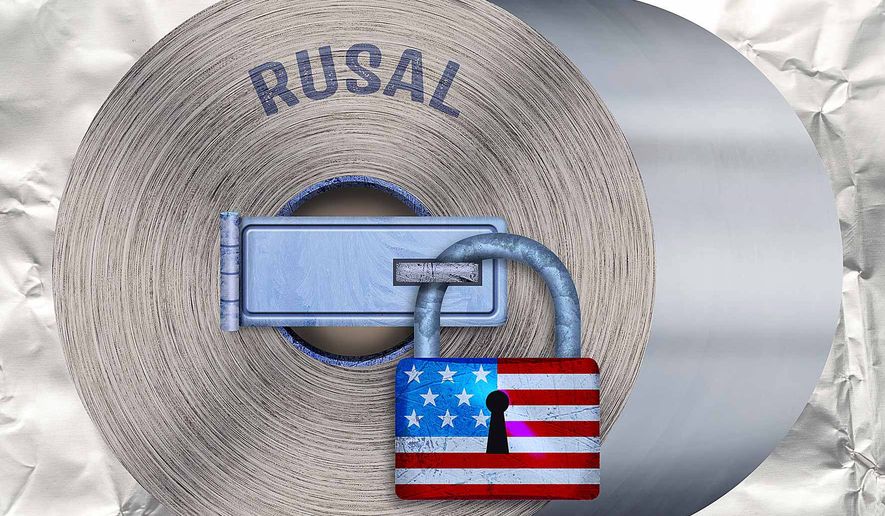OPINION:
In his first overseas speech as British Foreign Secretary, Jeremy Hunt last week stressed the importance of the West sticking with its tough line against Moscow.
The United States and Europe must call out Russian “transgressions with one voice wherever and whenever they occur, from the streets of Salisbury to the heart of Crimea,” Mr. Hunt said. He could not be more right.
Mr. Hunt rightly acknowledged that the United States has led the way on implementing hard-hitting economic sanctions against Moscow. President Trump has approved sanctions against more than 200 Russian oligarchs and senior government officials. He has also approved sanctioning dozens of Russian organizations and entities. These measures strike at the economic heart of Vladimir Putin’s inner circle of kleptocrats.
Furthermore, Mr. Trump has closed two Russian consulates in Seattle and San Francisco, and expelled 60 Russian diplomats thought to be spies. This is almost double the number President Obama expelled for election meddling in 2016 and more than Ronald Reagan’s expulsion of 55 Russian diplomats in 1986.
And the sanctions keep coming.
Just this month the Trump administration announced two more rounds. One batch is being imposed under a chemical and biological warfare law linked to the Sergi Skripal incident — the unprecedented use of a Russian nerve agent on the streets of England as part of an attempted assassination of the former double agent Skripal and his daughter. The second set of sanctions targeted Russian entities violating the international ban on energy trade with North Korea.
The administration’s consistently tough stance toward Russia makes the recent discussion regarding U.S. economic sanctions against Russian oligarch Oleg Deripaska and his aluminum company, Rusal, quite curious. Late last month, U.S. Treasury Secretary Steve Mnuchin suggested that sanctions against Rusal could be lifted. And earlier this month, Mr. Deripaska submitted a proposal to the Office of Foreign Assets Control aimed at making that happen.
In the proposal, Mr. Deripaska offered to reduce his holdings in En+ Group (Rusal’s parent company) to less than 45 percent by transferring shares to the Russian bank VTB. It’s a rather disingenuous offer. Not only is VTB close to the Kremlin, it too is under U.S. sanctions.
Lifting sanctions against Rusal would be a grave mistake.
The company is Russia’s largest producer of aluminum and the second-largest producer in the world outside China. According to a report by the British House of Commons Foreign Affairs Committee, “Rusal’s own website says that it supplied military material to the Russian military that was potentially used in Syria.” One can logically infer the same is true about Russian military hardware in occupied Ukraine and Georgia too.
Once the richest man in Russia and the ninth richest in the world, Mr. Deripaska is no stranger to controversy. When the U.S. Treasury slapped him with economic sanctions in April, it accused him of “bribery, extortion, racketeering, ordering the murder of a rival businessman and having links to organized crime.” Of course, he denies this. He would.
Mr. Deripaska is currently a person of interest in the Russian election-hacking investigation, due to his business ties with former Trump campaign manager and convicted felon Paul Manafort. Just this week, a group of Russian investigative journalists reported that Mr. Deripaska was allegedly involved in a plot to convince Kyrgyzstani authorities to close a U.S. airbase being used for operations in Afghanistan.
The U.S. government has absolutely no good reason to cut this man any slack.
With Russia — as with Iran and North Korea — the Trump administration must continue its tough, no-nonsense line of economic sanctions. And, the British government needs to practice what Jeremy Hunt preached last week. After all, U.K. regulators allowed Mr. Deripaska to raise $1.5 billion on the London Stock Exchange late last year. Even though some progress has been made, there is still a lot of dirty Russian money floating around London.
Even without a link to Mr. Deripaska, a Russian company like Rusal, which provides important raw materials for Moscow’s military machine, is a legitimate target for U.S. sanctions. After all, Russia has been flexing its military muscle in Syria, Ukraine and Georgia for years, destabilizing those regions and plunging hundreds of thousands into misery.
Now is not the time for the U.S. Treasury to lose focus on the bigger geo-political picture.
• Luke Coffey is the director of The Heritage Foundation’s Allison Center for Foreign Policy.




Please read our comment policy before commenting.